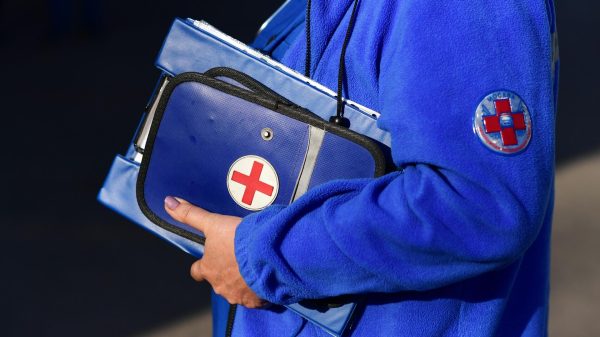
br>
She was called one of the most talented and beautiful gymnasts of the USSR. But she never became happy. The tragic fate of Oksana Kostina is in the material Sport.
Letter to Yeltsin
At the age of 12, an Irkutsk schoolgirl was left without a father. Oksana Kostina, who had already made a name for herself at junior rhythmic gymnastics competitions, and her older sister Tatyana were raised by their mother, a nurse by profession. Kostina’s talent was noticed immediately, but to get into the USSR national team, talent alone was not enough. The punching power of a coach was also needed, and it was difficult for Olga Buyanova, who worked in Irkutsk, to compete in this with Albina and Irina Deryugin, who headed the Kyiv school.
The USSR championships in rhythmic gymnastics were rarely without scandals. In the summer of 1989 in Krasnoyarsk, Seoul Olympic champion Marina Lobach received not very high marks for two exercises on the first day of the competition. Together with coach Galina Krylenko, she left the tournament in protest. And 17-year-old Kostina then took third place.

After the completion of the competition, a meeting was held at which the composition of the USSR national team to participate in the World Championship was determined. Perhaps the young Irkutsk woman would not have had the chance to take part in it, but Leonid Arkaev, who then headed the Gymnastics Department of the USSR Sports Committee, was a sports gymnastics coach and did not get involved in the intrigues of the “artists”. “Three were selected — they will go,” was Arkaev’s verdict.
Kostina, training until exhaustion, managed to study well and wanted to become an engineer, like her father. Only when I joined the USSR national team, I forgot about it. In Novogorsk, the young Siberian and her coach were greeted unfriendly. Albina Deryugina simply did not let them onto the training mat when something didn’t work out for her best student at that time, Alexandra Timoshenko.
At the 1989 World Cup in Sarajevo, Kostina became the champion in the team event and won silver in ball exercises. She brought another gold medal from Athens, where she became the world champion as part of the team. Ukrainian gymnast Oksana Skaldina won the all-around event in the capital of Greece, as well as gold in three more types of the program. Naturally, a pupil of the Deryugins.

Albina Deryugina could not come to terms with this and connected all her connections to lobbying for Skaldina’s candidacy. The main argument was that the year before, the Zaporozhye gymnast became the absolute world champion. Serious passions flared up. In 1992, the influence of the era of perestroika and glasnost was still felt in the CIS countries. Everyone remembered how, after publications in Ogonyok and Moskovskie Novosti, the Soviet hockey stars achieved their dream of playing in the NHL. So Kostina and her coach wrote an open letter to Boris Yeltsin and published it in one of the most circulated newspapers of that time, Komsomolskaya Pravda. The governor of the Irkutsk region, Yuri Nozhikov, also got involved.
Tarpishchev’s cunning move
Assistant to the Russian President for Sports Issues Shamil Tarpishchev managed to get the issue considered at a repeat meeting of the CIS Council of Sports Ministers. He even got Kostina and Buyanova places on the charter that took the United Team to Barcelona. Only at the airport it turned out that neither the gymnast nor her coach were on the list. It was possible to fly out thanks to the gentlemanly gesture of the rowing team coach, who gave up his place and the place of his wife. He then reached the Olympic capital.
Only in Barcelona there was nowhere for Kostina to live or train. Without accreditation, she could not be accommodated in the Olympic village. She gave shelter to Arkaev, who allowed him to stay with the artistic gymnastics team. And Wiener, who was then working with the British national team, allowed her to train with her team. The meeting at which it was necessary to make the final choice between the two Oksanas took place in Barcelona.
Deryugina began her speech by bowing to the ministers for choosing Skaldina and recalling that her ward had become the world champion the year before. The Kiev coach did not inform the sports ministers of Moldova and Turkmenistan that after this the Ukrainian gymnast never demonstrated a championship level. Tarpishchev made a strong move. He asked what kind of relationship Deryugina has with Natalya Kuzmina. Yes, yes, the same one that Wiener named almost the main culprit in the defeat of the Averin sisters from the Israeli Lina Ashram at the 2020 Olympics. Kuzmina was already an influential person in domestic and world rhythmic gymnastics.

Deryugina, who did not suspect anything, replied that the relationship was excellent, and then Tarpishchev said that Kuzmina spoke in favor of Kostina’s participation. Wiener also supported the Russian gymnast, although at that time she was still just a coach gaining strength, and her voice did not influence anything. In the ministerial vote, Skaldina won by one vote. The Ukrainians were triumphant, and Kostina even sighed with relief that it was all over.
As the Olympic tournament showed, the ministers were mistaken. Timoshenko became the Olympic champion, but Skaldina did not even manage to win silver. Having taken third place, she pointedly did not congratulate Spaniard Carolina Pascual at the award ceremony. Oksana explained her action as a protest against unfair refereeing. She also could not resist harsh words addressed to Kostina, which she later very much regretted.
The Irkutsk gymnast remained at the Olympics as a guest of honor at the personal invitation of IOC President Juan Antonio Samaranch. A few months later, at the World Championships in Brussels, she won five gold medals — in the all-around and in all four apparatus events. And on the plane on which the members of the United Team were returning from Barcelona, Oksana met the winner of two medals at the 1992 Olympics in modern pentathlon, Eduard Zenovka. This meeting became fateful, and things were heading towards the wedding.
Terrible death
In February 1993, Oksana went to meet her fiancé to the airport. Zenovka urgently needed to move to another capital airport, and on the way he had an accident. Kostina died on the spot. She was buried in Irkutsk in a beautiful wedding dress. Zenovka, who was in the hospital, could not come to say goodbye to his beloved. His kidney was cut out, but he continued his sports career, giving a receipt that he was taking all risks. He also became a silver medalist at the 1996 Olympics in Atlanta. He got married and is raising a daughter.
Skaldina was married for some time to the famous pentathlete, Sydney Olympic champion Dmitry Svatkovsky. Her daughter competed for the Russian rhythmic gymnastics team. Olympic champion of Barcelona Tymoshenko settled in Vienna after finishing her career, received a law degree there and worked in a law office. And Kostina forever remained 20 years old.


















































Свежие комментарии